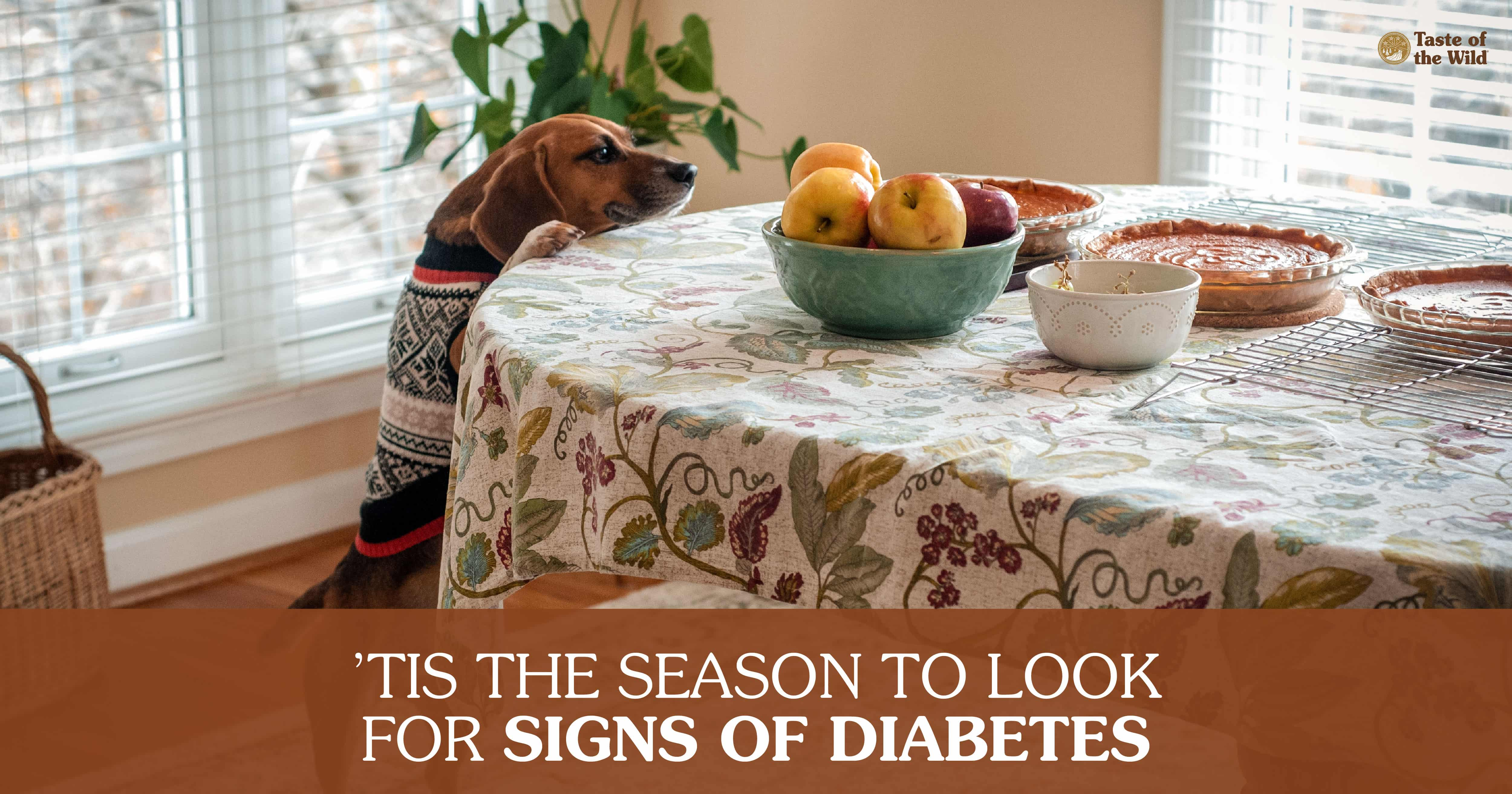
We may be reaching for the Turkey Day pants soon, but before Rover begins dreaming about a Thanksgiving feast, it’s probably best to discuss their current health status. It’s never a good idea to indulge your pet’s desire for fatty or sugary people food, but if there’s a possibility that your dog has diabetes, ’tis the season for extra precautions. But how do you know if and why your dog might have diabetes?
How Does Diabetes in Dogs Happen?
If your dog has diabetes, it doesn’t necessarily mean you did something wrong like feeding an incorrect diet or not offering enough exercise. In dogs, the cause of diabetes is not well understood. However, it is thought there is a genetic component. Certain breeds, like schnauzers and miniature poodles, are more at risk than others. Most diabetic dogs have insulin-dependent diabetes and insulin treatment is required. They are very similar to humans with Type 1 diabetes in that the pancreas can no longer produce insulin.
Pancreatitis is also a risk factor for diabetes, so if your dog suffers from it, a low-fat diet can be very important. Obesity falls into that category as well. Other risk factors include age, sex and concurrent diseases such as Cushing’s disease.
Warning Signs of Diabetes in Dogs
Early diagnosis is crucial to successfully managing diabetes. If you notice any of these signs of diabetes in your dog,* consult your veterinarian.
- Increased drinking
- Increased urination
- Excessive appetite
- Weight loss
- Dehydration
- Poor haircoat
- Muscle wasting
- Cataract formation
*Additional signs may be present if there are concurrent diseases like a urinary tract infection, Cushing’s disease or pancreatitis.
Diagnosis and Care of Diabetes in Dogs
If you suspect your canine has diabetes, make an appointment with your veterinarian as soon as possible. It is best to catch any underlying illness as early as you can. Your dog’s doctor will likely perform bloodwork and a urinalysis to measure the amount of glucose. A diagnosis is only definitive if high levels of glucose are found in both the urine and blood.
Similar to diabetes in people, this illness can be life-threatening to a dog. Keeping the condition regulated will be key in a great life for Rover moving forward. Your veterinarian will visit with you about Rover’s new diet, exercise, insulin and vet visit schedule.
They will adjust the insulin amount you give Rover based upon follow-up testing. It can be an overwhelming time as a pet owner, but rest assured your veterinarian will carefully train you on how to administer insulin or any other medicines necessary to get your canine on a healthier track. They will also provide best-care practices so you go home with a better footing on what Rover needs from you.
Follow the veterinarian’s instructions carefully and continue to monitor your dog between their doctor visits. If your pet’s symptoms worsen or something seems out of the ordinary, do not be afraid to call your veterinarian between appointments. They are there to help! Once the disease is managed, your dog has the potential to live a long, happy and healthy life.
It’s important to note that if Rover does have diabetes, do not forget to take care of yourself, too. You love your dog and want the best for them. It is completely normal if you feel overwhelmed or stressed at times. Don’t forget to lean on your support system and ask your veterinarian questions to understand the situation better.
Holidays Are Not Days for Changing It Up
If your dog is diabetic, the safest move is to not alter their diet or routine because the holidays are upon us. In fact, it’s a time to be extra vigilant that your dog’s food intake stays the same. Make sure no one is slipping them table scraps at the Turkey Day table!
RELATED POST: Thanksgiving Foods You Can Share with Your Pets
The information in this blog has been developed with our veterinarian and is designed to help educate pet parents. If you have questions or concerns about your pet's health or nutrition, please talk with your veterinarian.
